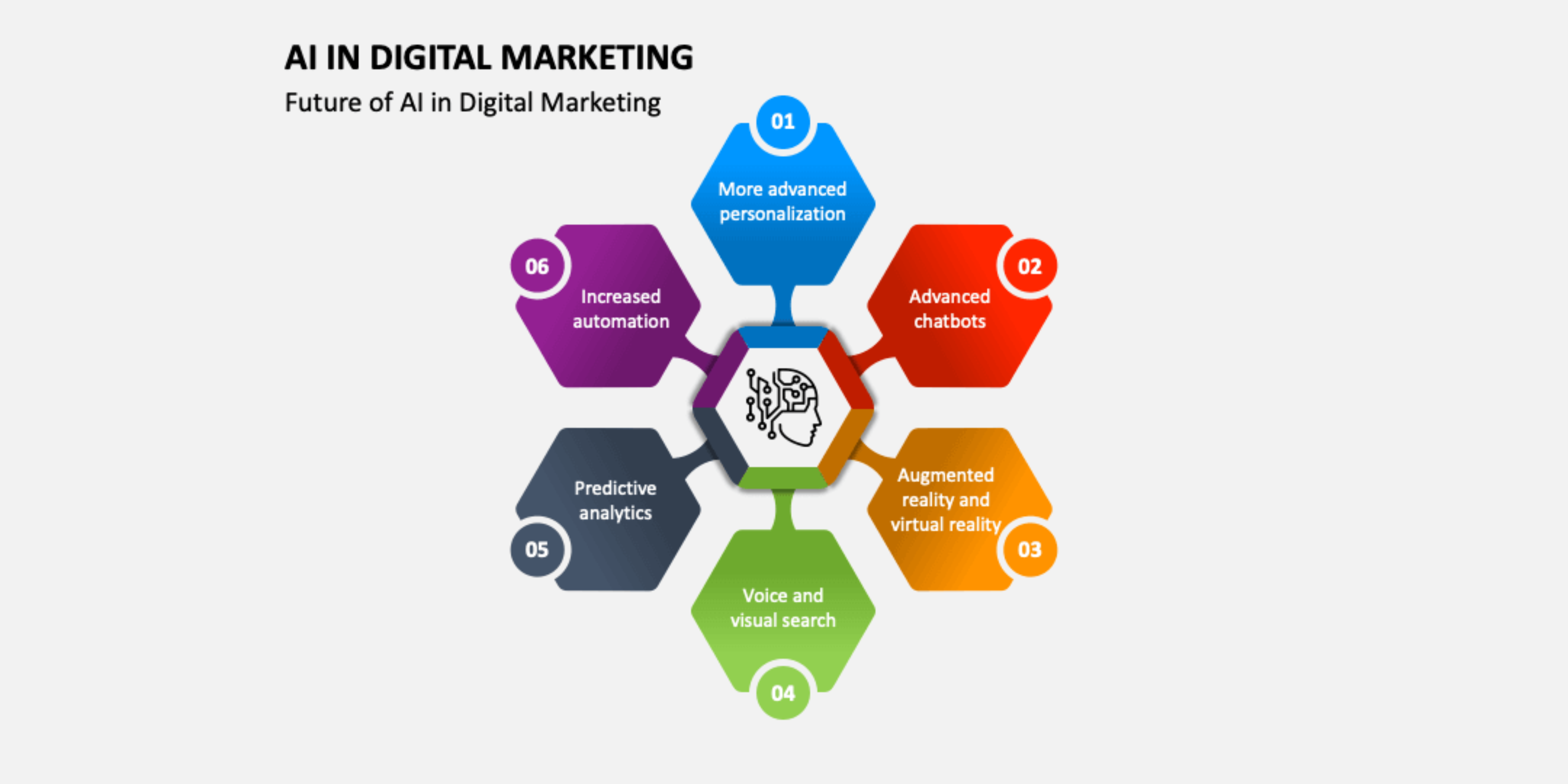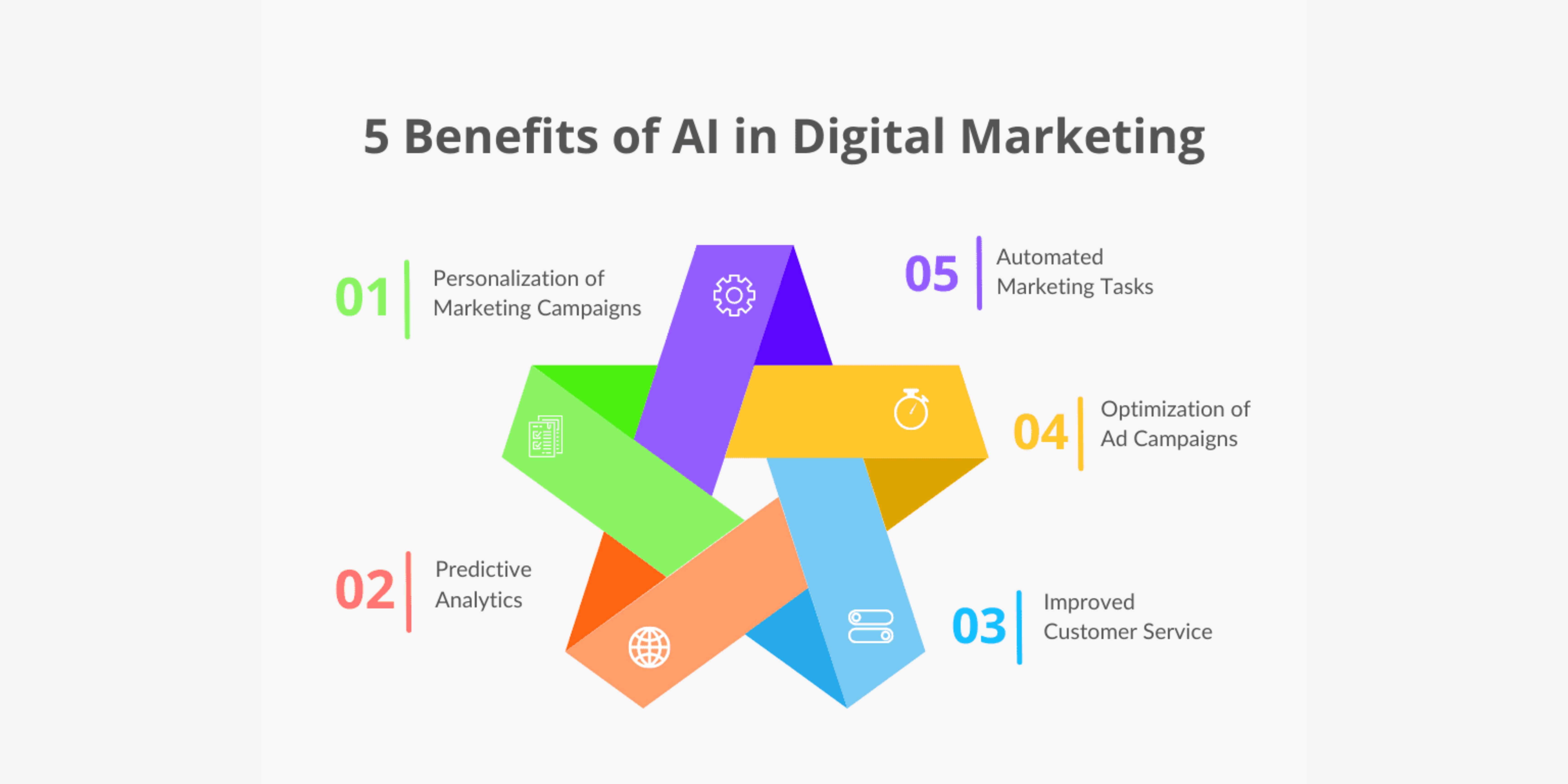Introduction
In today’s digital landscape, technology plays an increasingly significant role in the field of marketing. From social media platforms to data analytics tools, businesses are leveraging the power of digital tools to reach their target audience more effectively. One of the most transformative technologies in this realm is Artificial Intelligence (AI). This article aims to provide a comprehensive guide on how to integrate AI into digital marketing strategies, exploring its definition, key concepts, benefits, practical applications, case studies, challenges, and future trends.
Understanding AI in Digital Marketing
To begin our exploration, let’s first understand what AI truly means. Artificial Intelligence refers to the simulation of human intelligence in machines that are capable of performing tasks that would typically require human intelligence. In the context of digital marketing, AI enables marketers to automate processes, gain valuable insights from data, and enhance customer experiences. There are three types of AI commonly used in digital marketing:
1. Machine Learning
Machine Learning is a subset of AI that involves algorithms and statistical models that allow computer systems to learn and improve from experience without explicit programming. This technology enables marketers to predict customer behavior, optimize campaigns, and deliver personalized content based on user preferences.

2. Natural Language Processing
Natural Language Processing (NLP) focuses on the interaction between computers and human language. With NLP, marketers can analyze and understand vast amounts of unstructured data such as customer feedback, social media conversations, and product reviews. This helps in extracting valuable insights and sentiment analysis, which in turn can inform marketing strategies.
3. Predictive Analytics
Predictive Analytics is the use of historical data and machine learning algorithms to forecast future outcomes and trends. In digital marketing, predictive analytics can be used to optimize lead generation, anticipate customer needs, and improve the accuracy of targeted marketing campaigns.
The Benefits of AI in Digital Marketing
Integrating AI into digital marketing strategies offers numerous benefits that can significantly impact a business’s success. Let’s delve into a few key advantages:
A. Improved Customer Targeting
AI-powered tools enable marketers to deliver personalized experiences to individual customers. By analyzing data from various sources, such as browsing behavior, purchase history, and demographic information, AI algorithms can generate valuable insights and create highly targeted customer segments.

1. Personalization through Data Analysis
Personalization lies at the core of successful marketing campaigns. AI allows businesses to analyze customer data more efficiently, identify patterns, and deliver tailored content to specific audience segments. This not only increases customer engagement but also enhances brand loyalty.
2. Enhanced Customer Segmentation
Traditional marketing approaches often rely on broad customer segments. AI, however, enables marketers to go beyond demographics and create dynamic segments based on behavior, preferences, and interactions. By understanding the unique needs of different customer groups, businesses can design targeted messaging and drive conversions.
B. Automation of Repetitive Tasks
AI eliminates the need for manual execution of repetitive marketing tasks, enabling marketers to streamline their operations and focus on more strategic initiatives.
1. Streamlining Email Marketing Campaigns
AI-powered email marketing platforms can automate various aspects of campaign management, including email scheduling, A/B testing, and personalized content recommendations. This saves marketers time and effort, while also improving email performance and overall engagement rates.
2. Social Media Management and Scheduling
Managing multiple social media platforms can be time-consuming. AI-powered social media management tools can assist marketers in scheduling posts, analyzing engagement metrics, and even curating content suggestions based on user interests. This allows businesses to maintain an active social media presence without the hassle of manual management.
C. Data-driven Decision Making
AI empowers marketers with real-time data insights and predictive analytics, enabling informed decision-making to drive better marketing outcomes.
1. Utilizing AI for Predictive Analytics
AI algorithms can analyze vast amounts of data to identify patterns and trends, which can then be used to predict future customer behavior. This helps businesses make data-driven decisions, optimize marketing campaigns, and allocate resources effectively.
2. Real-time Data Insights for Informed Decision Making
In the fast-paced digital landscape, decisions need to be made quickly. AI tools provide real-time data insights, allowing marketers to monitor campaign performance, adjust strategies on the go, and stay ahead of the competition.
Practical Applications of AI in Digital Marketing
Now that we understand the benefits, let’s explore some practical applications of AI within the realm of digital marketing:
A. Chatbots and Virtual Assistants
Chatbots and virtual assistants are AI-powered tools that can enhance customer engagement and provide instant support and information.
1. Enhancing Customer Engagement
Chatbots offer a seamless and personalized customer service experience by providing quick responses to inquiries, assisting with product recommendations, and guiding users through the sales funnel. This improves customer satisfaction and helps businesses build stronger relationships with their target audience.

2. Providing Instant Support and Information
Virtual assistants, such as voice-activated devices, are becoming increasingly popular. These AI-powered tools enable customers to access information, make purchases, and perform various tasks using voice commands. By incorporating virtual assistants into digital marketing strategies, businesses can cater to the growing demand for voice interactions and stay ahead in the competitive market.
B. Content Creation and Optimization
AI can revolutionize content creation and optimization processes by leveraging data and algorithms.
1. AI-generated Content for Efficiency
Content creation can be time-consuming and resource-intensive. AI-powered tools, such as natural language generation algorithms, can assist in generating content automatically for blogs, social media posts, and product descriptions. This saves marketers valuable time and resources, ensuring a consistent flow of content for various online platforms.
2. SEO Optimization Through AI Algorithms
Search Engine Optimization (SEO) is crucial for ensuring visibility and organic traffic. AI algorithms can analyze search patterns, keywords, and user behavior to optimize content for search engines. This improves search rankings, drives website traffic, and enhances overall online visibility.
C. Programmatic Advertising
Programmatic advertising uses AI to automate the buying and placement of digital ads, allowing businesses to reach the right audience at the right time.
1. Automated Ad Buying and Placement
AI algorithms analyze consumer data in real-time, enabling businesses to target specific audiences and bid on ad placements instantly. This ensures that ads are delivered to the most relevant users, maximizing the return on advertising investments.
2. Targeted Advertising Based on User Behavior
AI-powered programmatic ads can personalize content based on user behavior, preferences, and context. By delivering tailored ads to individual users, businesses can increase click-through rates, conversions, and ultimately, revenue.
Case Studies
To further understand the impact of AI in digital marketing, let’s examine a few successful examples of companies integrating AI into their strategies:
A. Successful Examples of Companies Integrating AI in Their Digital Marketing Strategies
Amazon: The global e-commerce giant utilizes AI algorithms to provide personalized product recommendations based on previous purchases, browsing history, and customer preferences. This has significantly increased customer engagement and conversion rates.
Netflix: By leveraging AI and machine learning, Netflix analyzes user behavior and preferences to recommend personalized content. This has resulted in increased user satisfaction, decreased churn rates, and improved content discovery.
Spotify: AI algorithms in Spotify’s music recommendation engine help create personalized playlists based on individual user’s listening habits, preferences, and contextual data. This provides a customized music experience, driving user engagement and loyalty.
B. Measurable Outcomes and Improvements in Key Performance Indicators
The integration of AI has yielded tangible results for businesses. Companies that have successfully implemented AI in their digital marketing strategies have experienced improved customer engagement, increased conversion rates, enhanced customer satisfaction, and more effective targeting.
Challenges and Considerations
While the benefits of integrating AI into digital marketing are evident, there are several challenges and considerations that businesses must address:
A. Data Privacy and Ethical Concerns
As businesses gather and analyze vast amounts of customer data, it is essential to strike a balance between personalization and privacy. Marketers must be transparent about data collection practices, obtain user consent, and ensure compliance with relevant data protection regulations. Responsible AI usage includes avoiding biases in algorithms and ensuring fairness and equity in decision-making processes.
B. Integration and Implementation Challenges
Integrating AI into existing marketing strategies can pose implementation challenges. It requires careful planning, sufficient resources, and employee training to adapt to new technologies. Overcoming barriers to entry, such as budget constraints and resistance to change, is crucial for successful integration.
Future Trends in AI and Digital Marketing
As technology continues to advance, the future holds exciting opportunities for AI in the marketing landscape. Some emerging trends to watch out for include:
A. Emerging Technologies and Their Potential Impact
Technologies like augmented reality, virtual reality, and voice assistants are poised to revolutionize the way businesses interact with customers. AI will play a crucial role in enabling personalized and immersive experiences, allowing businesses to create unique and engaging marketing campaigns.
B. Predictions for the Evolution of AI in the Marketing Landscape
AI will continue to evolve at a rapid pace, becoming more sophisticated and integrated into various aspects of marketing. From advanced predictive analytics to hyper-personalization, AI will empower businesses to create targeted and memorable experiences for customers, ultimately driving growth and success.
Frequently Asked Questions
AI refers to the simulation of human intelligence in machines. In the context of digital marketing, it involves using advanced algorithms and technologies to enhance marketing strategies.
AI improves customer targeting by enabling personalization through data analysis and enhanced customer segmentation, ensuring more relevant and effective marketing campaigns.
Common types of AI in digital marketing include Machine Learning, Natural Language Processing, and Predictive Analytics, each contributing unique capabilities to marketing strategies.
AI automates tasks such as streamlining email marketing campaigns, managing social media, and scheduling, allowing marketers to focus on more strategic aspects of their campaigns.
AI generates content efficiently, saving time and resources, and contributes to SEO optimization through algorithms that ensure content aligns with search engine trends.
Conclusion
In conclusion, integrating AI into digital marketing strategies proves to be a game-changer for businesses in the modern era. With its ability to improve customer targeting, automate repetitive tasks, and drive data-driven decision-making, AI offers numerous benefits that can give businesses a competitive edge. However, it is essential to navigate the challenges associated with data privacy, ethical considerations, and implementation. By exploring emerging trends and embracing AI, businesses can unlock new possibilities and stay ahead in the ever-evolving digital marketing landscape.
